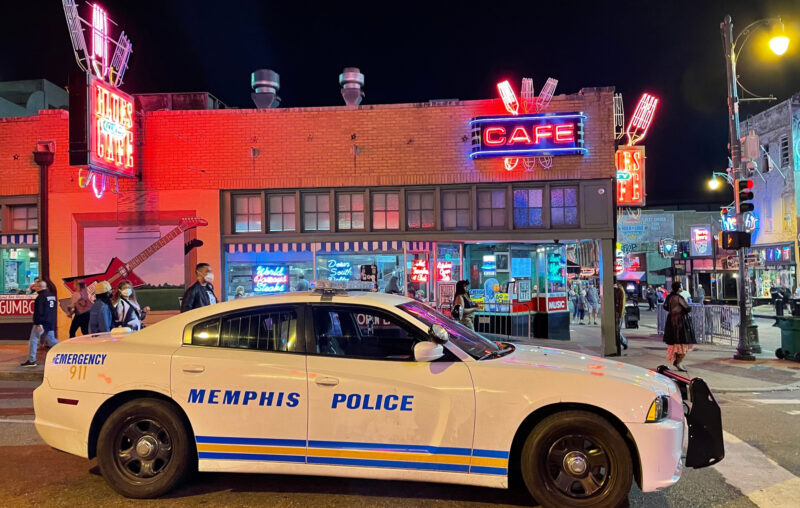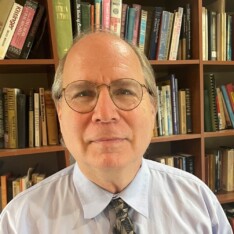


Memphis’s current police scandal ranks at or near the top in terms of severity compared to others in over the last three years. In January 2023, city prosecutors indicted five police officers for second degree murder for the savage beating and death of Tyre Nichols. They were working under the notorious SCORPION (Street Crimes Operation to Restore Peace in Our Neighborhoods) unit. In September, a federal grand jury indicted the officers for violating Nichols’s civil rights. Earlier, President Biden had announced that he was “outraged and deeply pained” by the incident.
Eighty-three years ago, beginning on October 25, 1940, Memphis had another police abuse scandal which, by some measures, was even more egregious. In contrast to 2023, however, the federal government made no protest. The catalyst was the election of J.B. Martin as Shelby County Republican party chair. Martin’s South Memphis Drug Store was one of the largest of its kind owned by African Americans. He had later acquired the Memphis Red Sox and was the president of the Negro American [Baseball] League.
In most of the solidly Democratic South, the election of an African American as a local Republican chair was an empty honor, but not so in Memphis. In that city, black votes still mattered because of a long-term arrangement between Democratic Boss E.H. Crump and the Shelby County GOP. Crump allowed African American voting as long as the Shelby County GOP backed his political machine in crucial primaries.
But Martin, who wanted to build a credible opposition party, had other ideas. On October 11, he organized a multiracial rally of over one thousand for Republican presidential candidate Wendell Willkie. Martin was taking a gamble but it was not unreasonable. National polls showed a tight race and the GOP had carried Tennessee as recently as 1928. Even if Willkie lost statewide, a national victory might put a powerful protector in the White House.
Crump, however, was not about to let an upstart black Republican imperil his alliance with President Roosevelt. He had loyally supported FDR since 1932 and, in return, had netted Memphis millions in federal dollars. Crump demanded that Martin resign and shutter GOP headquarters or he would “police” his drugstore. When Martin remained defiant, officers began to search each patron including kindergarteners. According to one report, they “ran their hands over little dresses and poked into the pockets of knickers.”
Crump then extended the “policing” to include Elmer Atkinson, another black Republican leader who owned a poolroom and taxi stand. He claimed (without any evidence) that Atkinson and Martin had conspired in a “dope business.” Meanwhile, G.A. Long of the Beale Street Baptist Church, along with other black Republicans, received an anonymous letter threatening bloodshed for “talking social equality.” Long reaffirmed his Republicanism and wondered how “any Negro in the South with good sense can afford to vote for the Democratic ticket.”
Meanwhile, Crump fumed that Martin and his allies were “spreading ideas of social equality” and that “Negroes might as well learn their places.” On the pretext of eliminating “undesirables,” Commissioner of Public Safety Joseph Boyle arrested sixty-five people on suspicion of carrying illegal weapons, a broadly defined category that included penknives. Martin lamented that “local influential persons are absolutely afraid to help me in my case” and that Crump was trying to put “me in the workhouse and I couldn’t stand that.” The pressure became so unbearable that both Martin and Atkinson fled the city.
FDR’s Department of Justice ignored Martin’s pleas. It refused to prosecute Crump though the head of the Civil Rights Unit seemed willing. When Martin briefly returned in 1943 to throw out the first ball at an All-Star Game of the Negro American League, three detectives entered his box, arrested him, and whisked him off to a holding cell. He was then ordered to leave town. The Department of Justice, finding no “violation of federal law,” rejected Martin’s request for a temporary return to settle his affairs.
Crump never suffered any consequences for his systematic suppression of an opposition party. His ties with FDR remained cozy, and he helped to engineer Harry Truman’s victory over Vice President Henry Wallace at the 1944 Democratic convention. Today, his local reputation, though somewhat tarnished, is largely intact. A major Memphis thoroughfare bears his name as does “Crump Station,” one of the city’s four main police units. By contrast, few remember Martin’s lonely stand for free speech.




